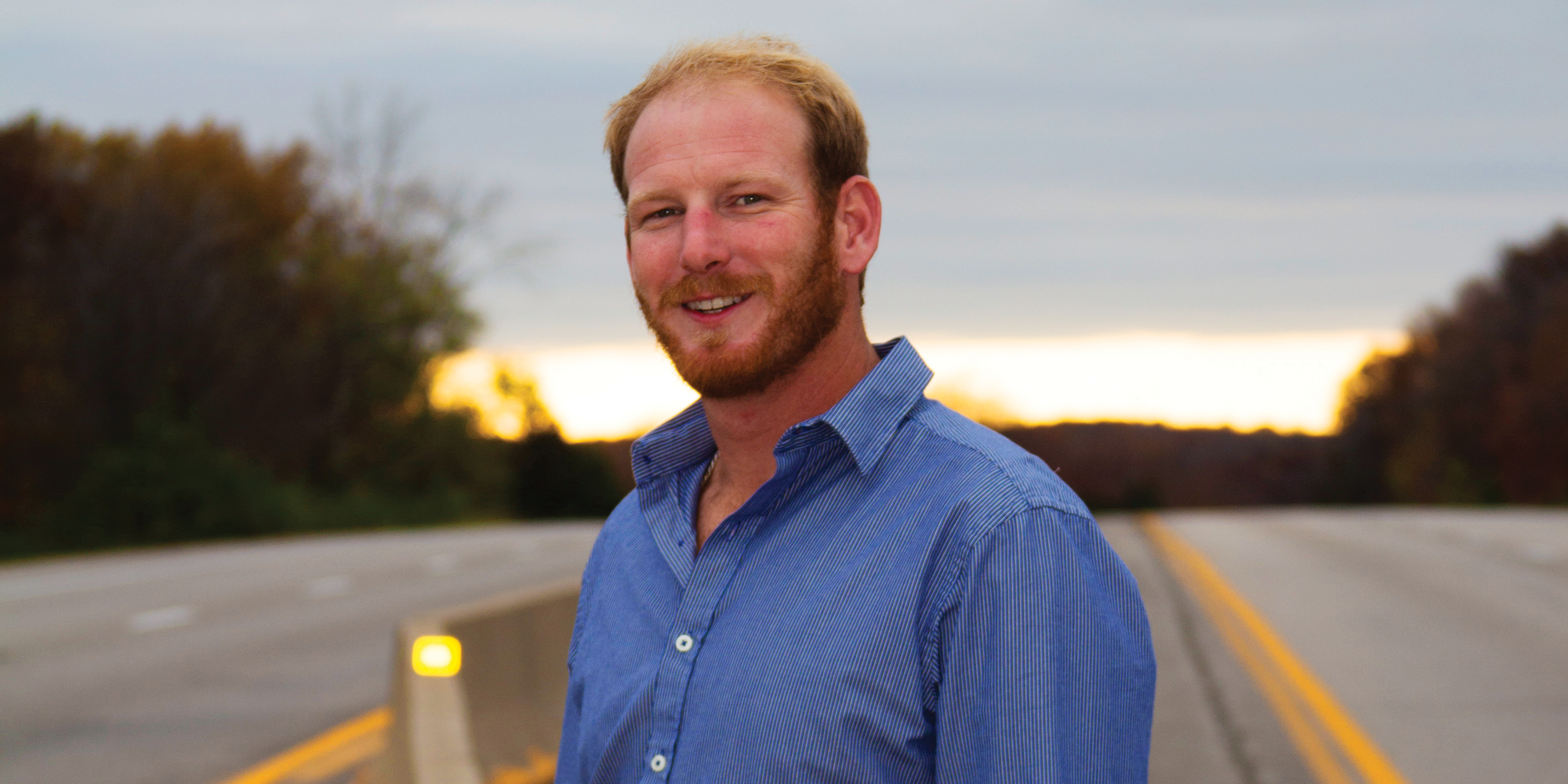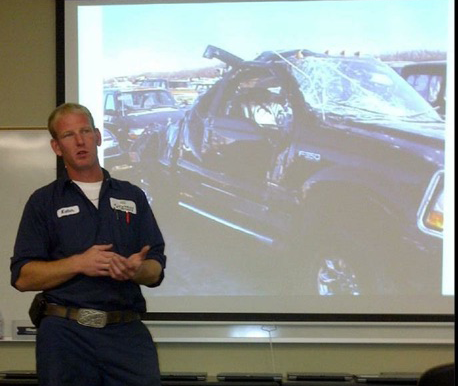
Sobering Story Impacts Young Drivers
December 25, 2015
Written By Adam Buckallew
Life is full of choices – big and small. Most are inconsequential, but some are powerful. Keller Colley found that out the hard way during Thanksgiving break of his freshman year of college. He and three friends decided to hop in a truck to meet some girls after a night of drinking. That choice would prove tragic. The driver wrecked the truck, killing two of Colley’s best friends and leaving Colley with a traumatic brain injury.
Colley awoke from a coma 15 days later. He had not been wearing a seatbelt and was thrown from the truck during the accident. Colley discovered he needed to relearn many basic functions such as walking and eating. A few days after emerging from his coma, he was moved from the hospital to Rusk Rehabilitation Center in Columbia, Mo. Eventually he would be released on New Year’s Eve, nearly a month after the accident.
“I look back on that night with a lot of regret,” says Colley, who now works with MFA Oil as an environmental health and safety coordinator. “If my friends and I had been wearing our seatbelts, if we wouldn’t have let the driver get behind the wheel drunk, if we would have just stayed home – things could have turned out much differently.”
This is the story Colley has shared with thousands of high school and college students throughout Missouri. During his stay at Rusk, Colley found out about ThinkFirst Missouri, an organization focused on the prevention of catastrophic accidents resulting in serious injuries to the brain and spine.
“Keller started working with us in 2004, about a year after his accident,” says Penny Lorenz Anderson, assistant director of ThinkFirst Missouri. “He was still getting outpatient rehab at that time, and he was interested in helping us educate young people about how he was injured and how to avoid a similar mistake.”
Colley started by making presentations during classes for local traffic offenders and eventually worked his way up to bigger audiences at high schools and college campuses.
“Keller is one of a kind,” Lorenz Anderson says. “He’s very personable, funny and relates well to any audience. He’s really been a perfect fit for our program. Kids can tell he speaks from the heart, and his message of avoiding the mistakes he made resonates.”
The power of Colley’s story was not lost on the Missouri Department of Transportation and Missouri State Highway Patrol. Both agencies have used video of Colley recounting his accident and its aftereffects in their educational outreach efforts.
“That night changed my whole life,” Colley says. “No one should have to deal with those sorts of things. And yet it all could have been prevented. That’s the main message I try to deliver. Simple decisions like always wearing a seatbelt and avoiding distractions while driving save lives.”
Although he now works full-time for MFA Oil, Colley still makes time in his schedule for about 10 ThinkFirst speaking engagements per year. He’s chosen to make the most of the second chance he was given when he survived his tragic accident.
“Sometimes the smallest choices in life can make a big impact,” Colley says. “You wouldn’t jump out of an airplane without a parachute. That’s just not safe. Yet many people suffer severe injuries every day because they refuse to wear a seatbelt. To me, that’s one of the most important decisions you can make.”




